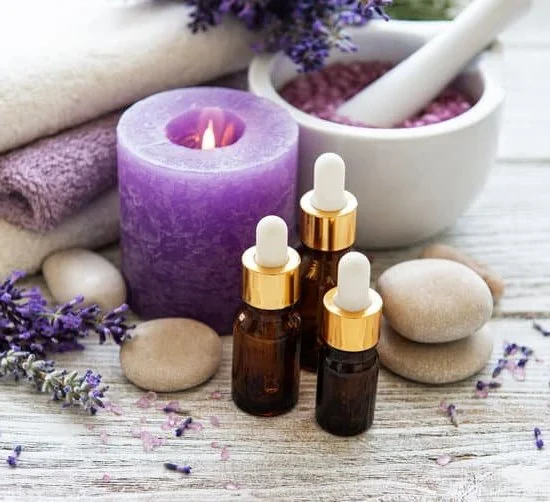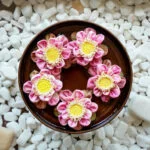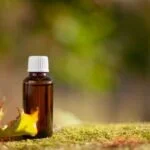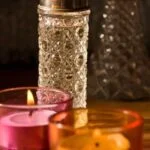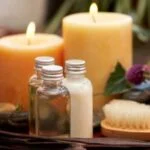In today’s fast-paced world, many of us are constantly seeking ways to find balance, relaxation, and healing in our lives. One popular method that has gained significant attention is the use of aromatherapy in bath and body products. But does this ancient practice truly work? Can the simple act of inhaling essential oils or applying scented lotions actually provide any tangible benefits?
This article seeks to answer these questions and uncover the truth behind the power of aromatherapy in bath and body products. By delving into the science behind aroma-enhanced healing, exploring its historical background, debunking common myths, and sharing personal testimonials, we aim to decipher whether incorporating aromatherapy into your self-care routine is a worthy endeavor.
Aromatherapy is not a new concept but rather an age-old practice that dates back centuries. Ancient societies recognized the therapeutic properties of essential oils derived from plants and used them for medicinal purposes. Today, with advancements in scientific research, we have a deeper understanding of how these natural fragrances interact with our bodies and minds on a physiological level.
Through this article, we will examine the benefits attributed to bath and body aromatherapy, ranging from stress relief to improved sleep quality. We will also address misconceptions surrounding aromatherapy and present practical tips on how you can incorporate it seamlessly into your self-care routine. Additionally, we will explore emerging trends and products in the field of bath and body aromatherapy that you should keep an eye out for.
Join us on this journey as we uncover the secrets behind scent-enhanced healing in bath and body products. Discover for yourself whether or not bath and body aromatherapy truly works – you might just find a new way to bring harmony and well-being into your life like never before.
What is Aromatherapy
Aromatherapy is an ancient practice that involves the use of natural plant extracts, known as essential oils, to support health and well-being. These essential oils are highly concentrated and capture the pure essence of plants, including their fragrance and therapeutic properties. When used in bath and body products, aromatherapy can provide scent-enhanced healing for both the body and mind.
The Power of Scent
One of the key principles behind aromatherapy is the power of scent to influence our emotions and overall well-being. Our sense of smell is closely linked to the limbic system, which is responsible for controlling emotions and memories. When we inhale aromatic molecules from essential oils, they can stimulate certain receptors in our nose that send signals to the limbic system.
Therapeutic Effects
The therapeutic effects of aromatherapy can vary depending on the specific essential oil used. Some common benefits include stress relief, relaxation, improved sleep, enhanced mood, and increased focus. Certain essential oils have anti-inflammatory or antimicrobial properties that can also promote physical healing.
Methods of Application
Aromatherapy can be incorporated into your self-care routine through various methods of application. One popular method is adding a few drops of essential oil to your bathwater or using scented bath salts or shower gels.
Inhalation is another effective technique where you can add a few drops of essential oil to a diffuser or simply inhale directly from the bottle. Massage with diluted essential oils or using scented lotions and creams are other ways to reap the benefits of aromatherapy.
The Science Behind Aromatherapy
Aromatherapy has been used for centuries as a natural healing practice, but what exactly is the science behind its effectiveness? Understanding how essential oils interact with the body and mind can shed light on why aromatherapy is so powerful.
Essential oils, which are the foundation of aromatherapy, are highly concentrated plant extracts. These oils contain various chemical components that give them their unique therapeutic properties. When inhaled or applied to the skin, these chemical components interact with the body in several ways.
One way essential oils work is through their impact on the limbic system, which is the part of the brain responsible for emotions and memories. The molecules in essential oils can directly affect this part of the brain, triggering emotional responses and promoting relaxation or alertness depending on the oil used.
Additionally, essential oils can also have physiological effects on the body. For example, certain oils like lavender or chamomile have been shown to reduce anxiety and promote better sleep. This is because these oils contain compounds that can calm the nervous system and improve sleep quality.
To fully understand how essential oils interact with the body and mind, it’s important to consider their chemical makeup. Each oil contains a unique combination of different compounds such as terpenes, esters, aldehydes, and more. These chemical components determine not only the aroma of the oil but also its specific therapeutic effects.
Incorporating aromatherapy into your self-care routine can be a powerful way to enhance your overall well-being. Whether you choose to diffuse essential oils in your home, add them to bath water, or apply them topically during a massage, understanding how they interact with your body and mind can help you make informed decisions about which oils to use for different purposes.
How Essential Oils Interact with The Body
- Essential oils can stimulate receptors in our olfactory system when inhaled.
- Chemical components within essential oils can enter the bloodstream when applied to the skin and have systemic effects.
- Some essential oils can interact with neurotransmitters in the brain, affecting mood and emotions.
How Essential Oils Interact with The Mind
- Essential oils can trigger emotional responses through their impact on the limbic system.
- Certain scents have been shown to stimulate memory recall or promote relaxation and stress relief.
- Different chemical components in essential oils can have varying effects on mental well-being.
Understanding the science behind aromatherapy can help support its credibility as a healing practice. It highlights the complex ways in which essential oils interact with our bodies and minds, offering a deeper understanding of why aromatherapy can be so effective. Whether you’re seeking stress relief, better sleep, or improved mental clarity, incorporating aromatherapy into your daily routine may provide valuable benefits.
Exploring the Benefits of Bath and Body Aromatherapy
Aromatherapy has long been recognized for its potential health benefits, and when incorporated into bath and body products, it can provide even more therapeutic advantages. One of the key benefits of bath and body aromatherapy is stress relief.
The soothing scents of essential oils can help calm the mind and relax the body, reducing anxiety and promoting a sense of tranquility. Whether you prefer lavender, chamomile, or bergamot, incorporating these scents into your bath or shower routine can have a profound impact on your stress levels.
In addition to stress relief, bath and body aromatherapy can also improve sleep quality. Many essential oils have sedative effects that can help promote relaxation and induce sleepiness. Scents like lavender, jasmine, and sandalwood are known for their calming properties, making them popular choices for bedtime rituals. By incorporating these scents into your bathing or moisturizing routine before bed, you may find yourself falling into a deeper sleep and waking up feeling refreshed.
Furthermore, bath and body aromatherapy can also have specific benefits for various ailments. For example, peppermint oil is known for its invigorating properties that can help with headaches or migraines when applied to the temples or forehead.
Eucalyptus oil is commonly used in bath products to alleviate respiratory congestion due to its decongestant properties. Tea tree oil is well-known for its antibacterial properties and may be effective in treating acne or skin irritations when used in body washes or lotions.
To fully experience the benefits of bath and body aromatherapy, it’s important to choose high-quality products that contain pure essential oils rather than synthetic fragrances. Look for labels that indicate the product is made with 100% natural ingredients. Additionally, consider incorporating other relaxation techniques such as deep breathing or meditation while enjoying your aromatherapy bath or shower to enhance the overall experience.
Revisiting Ancient Wisdom
Aromatherapy is not a new concept; in fact, it has a rich and ancient history that dates back thousands of years. The use of aromatic plants for healing and well-being can be found in cultures throughout the world, from ancient Egypt to China, India, and beyond. This section will explore the historical background of aromatherapy and its modern applications.
Ancient Origins: Aromatherapy in Traditional Healing Practices
The origins of aromatherapy can be traced back to ancient civilizations that recognized the power of plants and their aromatic compounds. In Egypt, for example, essential oils were used in religious rituals and embalming practices. The Egyptians also believed that these oils had healing properties and used them for medicinal purposes.
In China, aromatics have been used for thousands of years as part of traditional medicine practices such as acupuncture and herbal remedies. Traditional Indian medicine, or Ayurveda, also incorporates the use of essential oils for their therapeutic benefits.
Throughout history, different cultures have developed their own methods for extracting essential oils from plants, such as distillation processes. These techniques laid the foundation for the modern practice of aromatherapy that we know today.
The Rise of Modern Aromatherapy
While the ancient civilizations played a crucial role in establishing the foundations of aromatherapy, it was not until the early 20th century that this practice began to gain recognition in Western society. French chemist René-Maurice Gattefossé is often credited with coining the term “aromatherapy” after he discovered the healing properties of lavender oil when treating a burn on his hand.
Gattefossé’s findings sparked interest among other researchers and practitioners who began to explore the therapeutic benefits of essential oils more extensively. This led to further scientific research into their effects on both physical and mental well-being.
Today, aromatherapy has become a popular complementary therapy that is often used alongside conventional medicine. Many people turn to aromatherapy as a natural and holistic approach to promote relaxation, relieve stress, and enhance overall well-being. The use of essential oils in bath and body products has made aromatherapy more accessible and convenient for everyday use.
Modern Applications: Aromatherapy in Everyday Life
In modern times, aromatherapy has expanded beyond its traditional applications and is now widely integrated into various aspects of daily life. From personal care products like soaps, lotions, and bath bombs to diffusers and scented candles, the presence of aromatherapy can be found in many households.
Aromatherapy is not limited to just relaxation and stress relief; different essential oils have been found to have specific benefits for various conditions. For example, lavender oil is known for its calming properties and may help with sleep issues, while peppermint oil can provide a cooling sensation that relieves muscle tension.
Whether it’s incorporating essential oils into skincare routines or creating a relaxing atmosphere at home with scented candles, the historical background of aromatherapy continues to influence its modern applications. With ongoing research and advancements in the field, the future of bath and body aromatherapy looks promising as new trends and innovative products emerge.
Debunking Myths
Bath and Body Aromatherapy has gained popularity in recent years as people seek natural and holistic approaches to self-care. However, along with its rise in popularity, there have also been some misconceptions and myths surrounding this practice. In this section, we will address these common misconceptions and debunk them, providing a clear understanding of the truth behind Bath and Body Aromatherapy.
One common myth about Bath and Body Aromatherapy is that it is solely a placebo effect. Some skeptics claim that the benefits people experience from using aromatherapy products are purely psychological and do not have any real physiological effects on the body. However, numerous scientific studies have shown otherwise.
Essential oils used in aromatherapy contain bioactive compounds that can interact with our brain chemistry, influencing mood, emotions, and even physical health. These compounds can enter our bloodstream through inhalation or skin absorption, making their effects more than just a placebo.
Another misconception is that all essential oils are safe for use on the skin without dilution. While there are many essential oils that can be safely applied topically at low concentrations, it is crucial to understand that pure essential oils are highly concentrated substances. Using them undiluted can cause skin irritation or even chemical burns in some cases. It is important to dilute essential oils with carrier oils or other suitable mediums before applying directly to the skin.
Lastly, some people may mistakenly believe that Bath and Body Aromatherapy products are only for relaxation purposes or simply smell nice. While relaxation is indeed one of the primary benefits of aromatherapy, it goes beyond that.
Different essential oils have varying properties and can offer specific benefits such as relieving pain, boosting energy levels, improving focus and concentration, enhancing sleep quality, or easing digestive issues. Therefore, it is crucial to choose the right essential oil for your desired outcome and fully understand its properties before incorporating it into your self-care routine.
By debunking these common myths, it becomes evident that Bath and Body Aromatherapy is a legitimate and effective practice in promoting overall well-being. Understanding the scientific basis behind aromatherapy, using essential oils safely and appropriately, and recognizing the diverse benefits it offers will allow individuals to fully experience the potential of this ancient healing practice.
How to Incorporate Aromatherapy into Your Self-Care Routine
Aromatherapy can be a powerful tool for self-care, providing a way to enhance relaxation, promote well-being, and improve overall mood. With its various applications and benefits, it’s important to know how to properly incorporate aromatherapy into your self-care routine. Here are some practical tips and techniques to help you get started:
- Choosing the Right Essential Oils: The first step in incorporating aromatherapy into your self-care routine is selecting the right essential oils. Each essential oil has its own unique properties and benefits, so it’s important to choose ones that align with your specific needs. For example, lavender essential oil is known for its calming and relaxing effects, while citrus oils like lemon or orange can help uplift the mood.
- Diffusion Methods: One of the most common ways to enjoy the benefits of essential oils is through diffusion. There are several options for diffusing essential oils, including using an electronic diffuser, adding a few drops to a bowl of hot water, or even placing a few drops on a tissue or cotton ball and inhaling directly. Experiment with different methods to find what works best for you.
- Bathing Rituals: Another effective way to incorporate aromatherapy into your self-care routine is through bath rituals. Adding a few drops of your chosen essential oil to a warm bath can create a soothing and relaxing experience. You can also mix the essential oil with carrier oils like coconut or jojoba oil before adding it to the bathwater for added moisturizing benefits.
| Tips | Techniques |
|---|---|
| Choose the right essential oils that align with your specific needs. | Diffuse essential oils using an electronic diffuser, hot water method, or inhalation through tissue/cotton ball. |
| Incorporate essential oils into your bath by adding a few drops to warm water. | Mix essential oils with carrier oils like coconut or jojoba oil for added moisturizing benefits. |
In addition to diffusion and bathing rituals, there are other ways to incorporate aromatherapy into your self-care routine. You can create your own homemade body care products by adding essential oils to unscented lotions, creams, or massage oils. This allows you to customize the scent and therapeutic properties of your personal care items.
Another technique is using aromatherapy during meditation or mindfulness practices. Applying a drop of an essential oil to your pulse points or using a diffuser during these practices can help enhance focus and relaxation.
It’s important to remember that when incorporating aromatherapy into your self-care routine, quality matters. Be sure to purchase high-quality, pure essential oils from reputable sources to ensure their effectiveness and safety. Some essential oils may cause skin irritation or have contraindications for certain individuals, so it’s always recommended to do a patch test and consult with a healthcare professional if you have any concerns.
Overall, incorporating aromatherapy into your self-care routine can provide a natural and holistic approach to promoting well-being. By choosing the right essential oils and utilizing practical techniques like diffusion, bathing rituals, homemade body care products, and meditation practices, you can experience the therapeutic benefits of aromatherapy in a way that suits your individual needs and preferences.
Personal Testimonials
One of the most compelling aspects of bath and body aromatherapy is the personal testimonials from individuals who have incorporated it into their self-care routines. These testimonials provide firsthand accounts of the benefits and effects of using aromatherapy in bath and body products. By hearing these stories, others can gain insight into how aromatherapy has positively impacted the lives of real people.
Many individuals have experienced stress relief through the use of bath and body aromatherapy. The calming scents of essential oils, such as lavender or chamomile, can create a soothing environment that promotes relaxation. For example, Sarah, a busy working professional, shares her experience with bath and body aromatherapy: “After a long day at work, I love taking a hot bath with lavender-scented bath salts.
The aroma instantly relaxes my mind and helps me unwind from the day’s stresses. It has become an essential part of my self-care routine”.
Improved sleep is another common benefit reported by those who have tried bath and body aromatherapy. The use of essential oils like chamomile or valerian can help create a peaceful atmosphere conducive to restful sleep.
Amanda, a frequent traveler who often struggles with jet lag, explains how she incorporates aromatherapy into her bedtime routine: “I use an aroma diffuser in my bedroom with a blend of calming essential oils before going to bed. The scent helps me relax and fall asleep faster, even when dealing with time zone changes”.
These personal testimonials demonstrate the positive impact that bath and body aromatherapy can have on individuals’ well-being. While these experiences are subjective, they offer valuable insights for others considering incorporating this practice into their own self-care routines.
| Testimonial | Experience |
|---|---|
| Sarah | “After a long day at work, I love taking a hot bath with lavender-scented bath salts. The aroma instantly relaxes my mind and helps me unwind from the day’s stresses. It has become an essential part of my self-care routine.” |
| Amanda | “I use an aroma diffuser in my bedroom with a blend of calming essential oils before going to bed. The scent helps me relax and fall asleep faster, even when dealing with time zone changes.” |
The Future of Bath and Body Aromatherapy
As the popularity and understanding of aromatherapy continue to grow, the future of bath and body aromatherapy looks promising. With advancements in technology and research, there are exciting emerging trends and products to watch out for in this field.
One emerging trend in bath and body aromatherapy is personalized blends. More and more companies are offering customized aromatherapy products that cater specifically to individual needs. By taking into account factors such as personal preferences, health conditions, and desired effects, these personalized blends can provide a more targeted and effective aromatherapy experience. This trend allows individuals to have a truly unique self-care routine that addresses their specific concerns.
Another exciting development in the world of bath and body aromatherapy is the use of innovative delivery methods. While traditional methods such as candles, diffusers, and bath oils are still popular, new ways of incorporating essential oils into our daily lives are emerging. For example, there are now shower steamers infused with essential oils that release fragrance as they dissolve in water.
Additionally, wearable aromatherapy jewelry is gaining traction among those who want to benefit from aromatherapy on-the-go. These advancements make it even easier for people to incorporate aromatherapy into their busy lifestyles.
Furthermore, the field of bath and body aromatherapy is expanding beyond just relaxation and stress relief. Researchers are discovering new therapeutic applications for essential oils and their ability to support overall well-being. From promoting better sleep to relieving symptoms of certain ailments like headaches or digestive issues, the potential benefits of aromatherapy continue to be explored and expanded upon.
In conclusion, the future of bath and body aromatherapy looks promising with emerging trends such as personalized blends, innovative delivery methods, and expanding therapeutic applications. As more people recognize the power of scent-enhanced healing through essential oils, we can expect further advancements in this field.
Whether you’re looking for stress relief or seeking natural solutions for various health concerns, bath and body aromatherapy has something to offer everyone. So why not indulge in the power of fragrance and experience the benefits of aromatherapy for yourself?
Frequently Asked Questions
Does aromatherapy from Bath and Body Works really work?
The effectiveness of aromatherapy from Bath and Body Works can vary from person to person. Aromatherapy relies on the principle that certain scents can have a positive impact on mood, relaxation, and overall well-being. Bath and Body Works offers a range of aromatherapy products including candles, oils, and body care items infused with fragrances believed to promote specific benefits.
Some individuals may find that these products create a calming or uplifting atmosphere for them, enhancing their overall sense of relaxation or focus. However, it’s important to note that the effects of aromatherapy are subjective and can differ based on personal preferences and individual responses to different scents.
How do you use aromatherapy oils Bath and Body Works?
Using Bath and Body Works aromatherapy oils is relatively straightforward. These oils are typically meant for diffusion, where the scent is released into the air through a diffuser or simply by adding a few drops to hot water. To use the oils in a diffuser, add water along with several drops of your chosen oil into the diffuser’s reservoir and follow the device’s instructions for operating it.
Alternatively, you can make a DIY room spray by mixing the aroma oil with water in a spray bottle and misting it around your living space. It’s advisable to start with small amounts of oil and adjust according to your preference since some scents may be stronger than others.
Does aromatherapy lotion work?
Aromatherapy lotions can provide various benefits depending on their ingredients and formulations; however, their effectiveness may also vary among individuals. Aromatherapy lotions typically contain essential oils or fragrance blends that claim to evoke specific therapeutic effects such as relaxation or energy boost. These lotions are applied topically during self-massage or regular skincare routines, allowing for absorption through the skin while enjoying the aromatic experience.
While some people might find that applying aromatherapy lotion enhances their mood or promotes relaxation due to sensory stimulation, it’s important to remember that individual preferences, sensitivities, and responses to scents can greatly influence the perceived effectiveness of such products. Ultimately, it may require some personal experimentation to determine if aromatherapy lotions work well for an individual’s desired outcomes.

Are you looking for a natural way to improve your health and wellbeing?
If so, aromatherapy may be the answer for you.

